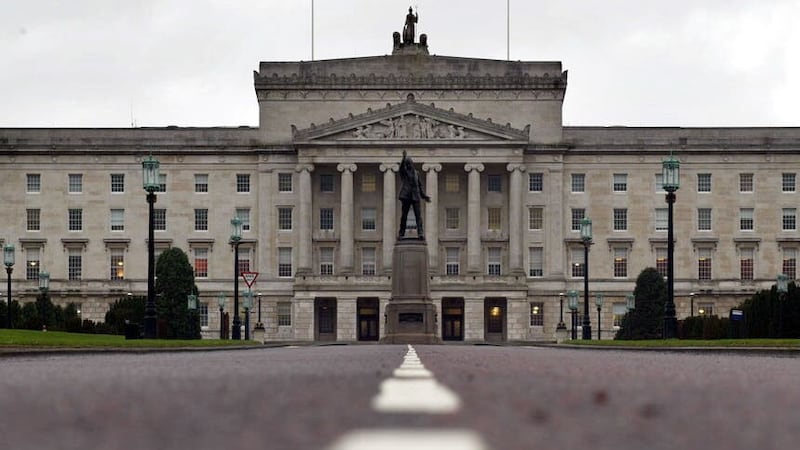STORMONT’S departments may need to find around £800 million in cuts and additional revenue this year, following last week's budget.
The Northern Ireland Fiscal Council has also warned that pressures on public finances will grow over the next decade because funding from London is falling below the level of need.
The independent watchdog said Stormont’s departments face a real-terms spending cut of 3.3 per cent this year. That’s despite a deal with the Treasury to delay repaying a £297m overspend from last year’s budget.
The NI Fiscal Council, which was set up two years ago to scrutinize public spending here, said delivering the budget set by Secretary of State Chris Heaton-Harris last week, will be “tough”.
The £800m figure is what the Northern Ireland Civil Service estimates is needed this year alone.
The watchdog said that compared to their allocations in 2022-23, education, justice and economy all face larger-than-average real cuts in the Secretary of State’s budget for this year.
It said the cut in education is "in notable contrast" to the planned rise in English schools spending, while health, infrastructure and communities face smaller real cuts than the average.
Ulster University economist, Esmond Birnie, who sits on the council, said the real terms reduction in this year’s budget is going to be very challenging.
“It will be a bigger real terms reduction in what we saw during the so-called austerity years of 2010 through to roughly 2017/18,” he said.

The fiscal watchdog said the financial challenges confronting Stormont’s Departments in part reflect inflation and pay pressures common across the UK and “weaknesses in budget management specific to NI and exacerbated by the absence of an Executive”.
It said the possible response for Northern Ireland could range from an acceptance of lower quality/quantity of services; or cuts to lower priority services and/or increasing efficiency.
The alternative would be to raise more revenue from rates and other charges, or to seek greater levels of funding from the UK Government.
The Fiscal Council warned that the challenges around public finances here will get worse over the coming years due to what’s known as the ‘Barnett squeeze’.
The Barnett Formula dictates that government spending on public services in England produces a cash allocation for the devolved administrations.
But the way the formula works over time means the percentage the UK Government spends per head of population in Northern Ireland will decrease, relative to its need.
London accepts that achieving a similar level of public services in the devolved administrations requires a much higher spend per head of population than it spends in England.
That’s because of things like lower population, levels of deprivation, age structure and long-term illness.
The Fiscal Council estimates that spending in Northern Ireland currently needs to be 24 per cent per head higher than in England to achieve similar outcomes.
The independent watchdog said block grant funding is set to be around 25 per cent higher than equivalent UK Government spending in England in 2024-25.
But it anticipates that will fall below 20 per cent by the early 2030s and continue to fall in subsequent decades.
Chair of the fiscal watchdog, Sir Robert Chote, said: “For many years NI Departments benefited from funding-per-head that was not only well above spending in England but also above estimates of relative need.
“The funding premium has fallen sharply to broadly in line with relative need – which has already proved very challenging – and it is set to drop even further.
“That will increase the pressure on a restored Executive to deliver reform and improve efficiency, as well as confronting it with difficult choices over cutting services or raising more revenue.
“Another option would be to put a floor under the Block Grant funding in line with relative need, as in Wales, but that would need the agreement of the UK Government.”








